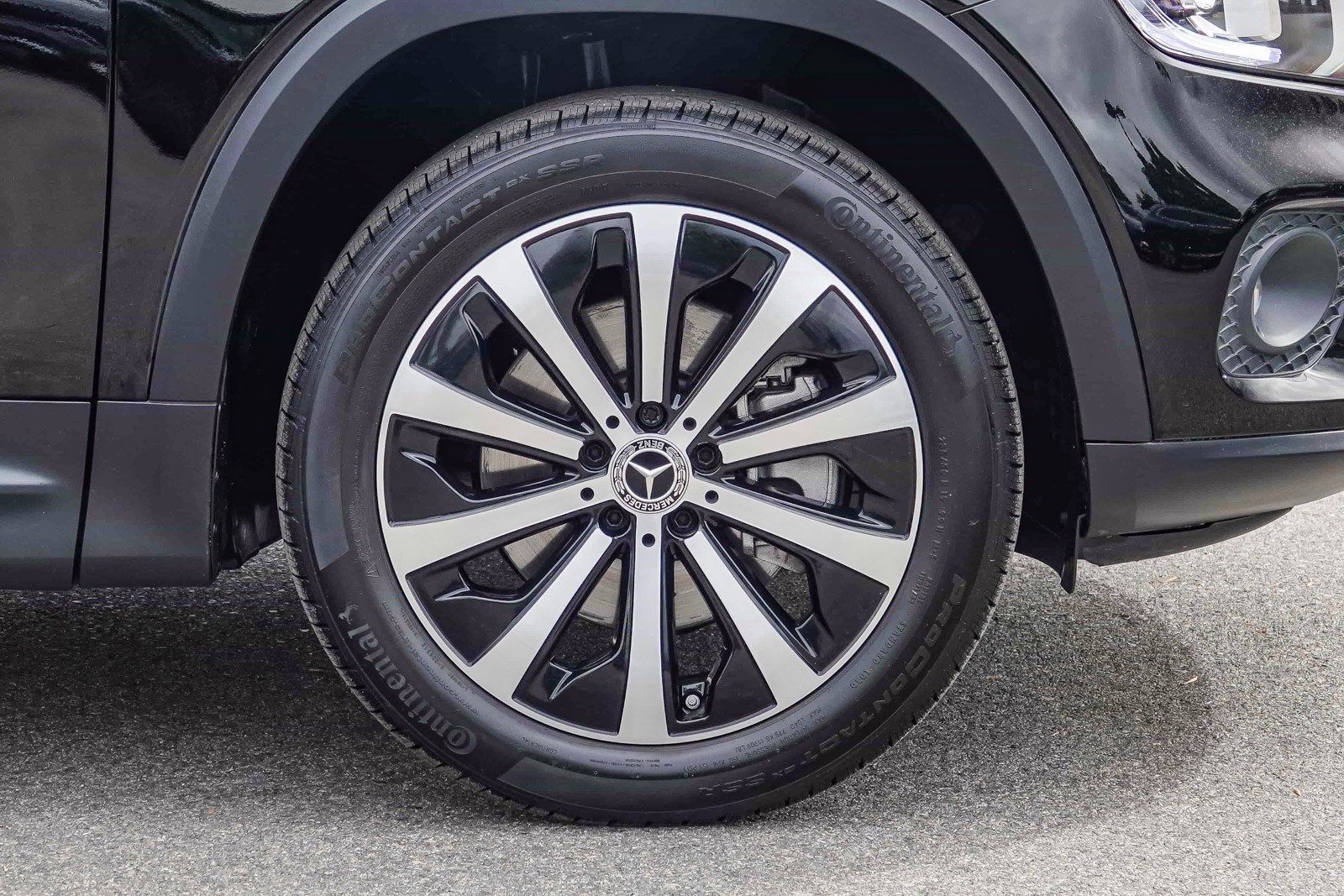Tips for Getting the Right Tires
The tires on your Mercedes-Benz are one of its most important components. They help keep your car or SUV on the road, avoid hydroplaning, and ensure it stops on time. Tires vary by size, tread, and seasons and are a major investment, so how do you choose the right tires? Our team at Mercedes-Benz of Temecula, California, has put together this tire buying guide to explain the different types of tires and which ones are best for your driving needs.
Introduction to Choosing the Right Tires
When you walk into a tire shop or a dealership's tire center, the choices can feel overwhelming. However, there are several factors you need to consider when buying new tires, including if you drive in the snow, need high-performance tires, or use your Mercedes-Benz for off-road adventures.
Assessing Your Needs Before Buying Tires
Are your current tires showing signs of wear and tear? Is your vehicle pulling to one side? Is your Mercedes-Benz hydroplaning on wet roads or taking longer to stop? If you notice any of these signs, you probably need new tires.
The best way to know if you need tires is to have a professional tire technician check them out. They have diagnostic tools to establish tread depth, uneven wear and tear, and can give you tire buying tips. When you ask them what type of tires you need, they'll ask you questions such as how you plan on driving, if you're going to take the car to snowy areas, and how long you want your new tires to last.
Types of Tires and Their Advantages
Simply selecting tires randomly is not the most efficient way to choose tires for your vehicle. Tire technicians will use a tire selection guide and your information to decide which type of tire fits your driving style. Below, we'll compare the most common types of tires and discuss their advantages.
All-Season Tires
All-season tires are ideal for everyday driving in different weather conditions. They're made for optimal levels of performance and traction while remaining quiet on the road. The design of the tread allows it to expel some water when it's raining, and the type of material used to make all-season tires means they often last longer than specialized tires.
Summer Tires
Summer tires are made of a different material from all-season tires, and they can adapt and grip better on hot surfaces. While you may think summer tires are only good for extreme heat, they are also beneficial for driving in wet weather, as the wide tread helps expel water to avoid hydroplaning.
Winter Tires
Winter tires have fortified rubber that remains flexible in freezing conditions when temperatures drop below 46 degrees Fahrenheit for weeks and months at a time. These types of tires can help a front-wheel or rear-wheel drive vehicle grip far better than all-season tires in adverse weather. Winter tires have a unique tread pattern that allows the treads to flex and expel water without allowing snow to clog them up. If you use winter tires, change them back to summer or all-season tires after winter to extend their lifespan.
Run-Flat Tires
Running over a nail or getting a puncture in one of your tires can cause a flat tire, which is not only inconvenient but also unsafe. Today, many people who drive frequently or commute long miles on the highway opt for run-flat tires. These tires can run without air pressure for a limited time after a puncture to allow you to get your vehicle to a tire repair shop.
The main benefit of having run-flat tires is that you don't have to change the tire in unsafe conditions, such as on the side of a busy highway. While they allow some level of security, run-flat tires are designed to drive about 50 miles, so you can't run on them indefinitely.
Mud or Mud-Terrain Tires
If you plan on taking your vehicle to an off-road park to plow through mud pits or drive on muddy roads in the wet season, you may need mud tires. These have extremely wide tread and patterns designed to throw mud out of the treads without clogging the tire up and causing the vehicle to slide. These types of tires are very specialized for unique driving needs.
Off-Road Tires
If you enjoy going off-road on challenging backcountry trails, you'll need off-road tires. The two main types of off-road tires are all-terrain (AT) or mud-terrain (MT). MT tires are for muddy conditions, while AT tires have interlocking tread patterns ideal for gripping rocks and driving over dirt and gravel. Again, off-road tires are specialized and don't perform as well as all-season tires for strict asphalt driving.
High-Performance Tires
High-performance tires have soft rubber with minimal tread to stick to the road on fast tracks. They are designed for control when speeding around a track or high-speed cornering. Choose high-performance tires for your sporty Mercedes-Benz if you plan to drive it at speeds over 149 mph.
Purchase Care and Maintenance
Regular maintenance of your tires is key to having them perform for their expected life span. You need to routinely rotate and balance your tires, align the wheels, and keep the tire pressure at the manufacturer's recommended pressure.
When you enroll in the Mercedes-Benz MBUSA tire program, you'll get 24/7 coverage for tire damage. You get this complimentary coverage when you purchase any Mercedes Original tires at Mercedes-Benz of Temecula. These high-grade tires give you precision control for all your driving needs.
Get the Right Tires at Mercedes-Benz of Temecula
The right tires for your vehicle, driving habits, season, and terrain are essential for the proper performance of your Mercedes-Benz. If you need tips for buying tires or how to choose tires for your car, contact us at Mercedes-Benz of Temecula, California. You can also stop by our tire center to view the various types of tires we carry, from all-season to high-performance.
